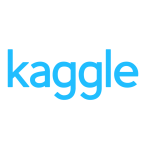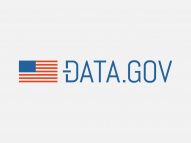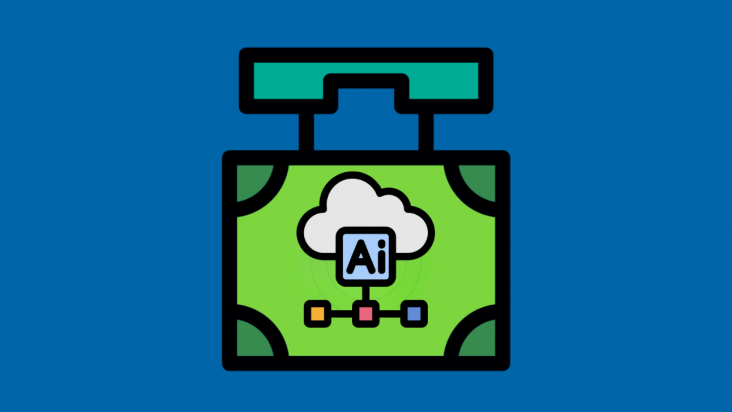Best Free Data Websites for Your Projects [2024]
In the digital era, data is the new gold. It powers everything from simple web applications to complex machine learning algorithms. But where does one find this treasure? And more importantly, how can you access it without breaking the bank? This article will guide you through the maze of finding and utilizing free datasets, highlighting the top 10 data repositories that you should have bookmarked.
| Name | Type of Data | Access | Important Personnel | Website | |
|---|---|---|---|---|---|
 | Diverse, including everything from economics to advanced machine learning datasets. | Free, requires registration. | Anthony Goldbloom, Ben Hamner (founders) | https://www.kaggle.com/ | |
 | Primarily focused on machine learning. | Open access without the need for registration. | David Aha (founder) | https://archive.ics.uci.edu/ | |
 | Aggregated from various sources, covering numerous fields. | Free, with datasets available directly from the source. | - | https://datasetsearch.research.google.com/ | |
 | Large-scale datasets including genomic, meteorological, astronomical data. | Accessible through AWS, some services may incur costs. | Adam Selipsky (CEO) | https://aws.amazon.com/ | |
 | Government data across various sectors like health, education, finance. | Open access, freely available. | Government of the United States (owner) | https://data.gov/ | |
 | Global development data, including economic, health, environmental statistics. | Free and open access. | Ajay Banga (CEO) | https://data.worldbank.org/ | |
 | Data journalism, including sports, politics, economics datasets. | Free, available through their articles. | Nate Silver (Founder) | https://abcnews.go.com/538 | |
 | A curated list of datasets from various domains. | Open, hosted on GitHub. | Tom Preston-Werner, Chris Wanstrath, P. J. Hyett, Scott Chacon (founders) | https://github.com/?ysclid=lua5cgwd70916255785 | |
 | Health-related data from around the world. | Free, open access. | World Health Organization (owner) | https://www.who.int/data/gho | |
| Gapminder | Global development data, focusing on economic, health, environmental topics. | Free and open. | Ola Rosling, Anna Rosling Rönnlund, and Hans Rosling (founders) | https://www.gapminder.org/ |
The quest for free datasets begins with a savvy search strategy. Search engines, when used effectively, can unearth a plethora of sources. Keywords like “free public datasets” or “open data repositories” are your best friends here. Academic and research institutions often provide access to rich datasets for scholarly and educational purposes. Don’t overlook the websites of government and non-profit organizations, which frequently offer datasets aimed at fostering transparency and innovation.
Best Free Data Websites
Kaggle

- Type of Data: Diverse, including everything from economics to advanced machine learning datasets.
- Access: Free, requires registration.
- Kaggle is not just a data repository. it’s a vibrant community where data scientists and enthusiasts converge to solve problems. It hosts competitions that challenge users to find innovative solutions using their datasets. Kaggle’s databases are varied, providing a rich playground for information exploration and model building. The platform also offers kernels and notebooks, allowing users to run data science projects and share their work. Kaggle is a fantastic resource for both learning and applying data management skills.
- Website: Kaggle
UCI Machine Learning Repository

- Type of Data: Primarily focused on machine learning.
- Access: Open access without the need for registration.
- The UCI Machine Learning Repository is a classic go-to for machine learning datasets, well-respected in academic circles. It provides a simple, structured environment for users to find sets of data categorized by the type of machine learning problem. The repository includes information for classification, regression, clustering, and more, making it ideal for both educational purposes in research projects. Each array element comes with a detailed description, including information about the data attributes, the number of instances, and, often, previous uses in research. This resource is invaluable for those looking to delve into machine learning.
- Website: UCI Machine Learning Repository
Google Dataset Search

- Type of Data: Aggregated from various sources, covering numerous fields.
- Access: Free, with datasets available directly from the source.
- Google Dataset Search functions like a search engine specifically for datasets, pulling metadata from diverse variants across the web. It enables users to find datasets stored across the internet, regardless of where they’re hosted. This tool is incredibly useful for researchers and data scientists looking for specific types of materials. By aggregating information from various sources, it saves users the time and effort of visiting multiple repositories.This website is a must-have tool in any data professional’s arsenal for its breadth and ease of use.
- Website: Google Dataset Search
Amazon Web Services (AWS) Public Data Sets

- Type of Data: Large-scale datasets including genomic, meteorological, astronomical data.
- Access: Accessible through AWS, some services may incur costs.
- Description: AWS Public Data Sets offer a collection of large sets of data that can be integrated with AWS cloud services. This allows users to analyze and process materials using AWS’s computational resources. This service includes a wide array of subjects, from weather to genome sequences, supporting a variety of data-driven projects. AWS’s infrastructure makes it possible to handle large information arrays efficiently, which is a significant advantage for projects requiring substantial computational power. For those working on big data projects, AWS Public Data Sets provide a valuable resource.
- Website: AWS Public Datasets
Data.gov

- Type of Data: Government data across various sectors like health, education, finance.
- Access: Open access, freely available.
- Data.gov is the U.S. government’s hub for open data, offering sets of data from various federal agencies. The platform is designed to improve public access to high-value, machine-readable information generated by the Executive Branch of the Federal Government. With a focus on transparency and innovation, Data.gov makes it easier for individuals and companies to leverage government data. The site features a user-friendly interface and provides tools for searching, downloading, utilizing the available datasets. For projects that benefit from governmental data, Data.gov is an unparalleled resource.
- Website: Data.gov
World Bank Open Data

- Type of Data: Global development data, including economic, health, environmental statistics.
- Access: Free and open access.
- World Bank Open Data offers free and open access to a comprehensive set of data about development in countries around the globe. The platform provides tools and resources to explore, analyze, and visualize this vast array of data. It’s an essential source for researchers, policymakers, anyone interested in global development trends. The material covers a wide range of topics, from economic indicators to education and health statistics, making it versatile for various projects. World Bank Open Data is a cornerstone for those looking to understand or impact global development.
- Website: World Bank Open Data
FiveThirtyEight

- Type of Data: Data journalism, including sports, politics, economics datasets.
- Access: Free, available through their articles.
- FiveThirtyEight is renowned for its data journalism, and it generously provides the datasets used in its stories. This allows readers and researchers to delve into necessary information behind the narratives on current events, sports analyses, and political forecasts. The datasets are not only a great resource for practice but also for teaching real-world applications of data analysis. FiveThirtyEight’s commitment to transparency and info literacy makes its bases a valuable educational tool. For those interested in the intersection of data, news, and storytelling, FiveThirtyEight’s datasets are a treasure.
- Website: FiveThirtyEight
GitHub – Awesome Public Datasets

- Type of Data: A curated list of datasets from various domains.
- Access: Open, hosted on GitHub.
- The Awesome Public Datasets repository on GitHub is a curated list of hundreds of public datasets, organized by topic. This is a community-driven project, which means constantly improving the quality and variety of its products. This collection spans across numerous domains, from biology and economics to machine learning and government data. It’s an excellent starting point for those looking to explore a large amount of data in a specific field. The GitHub platform also facilitates collaboration, allowing users to contribute by adding new datasets or updating existing ones.
- Website: Awesome Public Datasets
The Global Health Observatory

- Type of Data: Health-related data from around the world.
- Access: Free, open access.
- The Global Health Observatory, maintained by the World Health Organization, is the definitive source for global health data. The platform provides data and analyses on global health priorities, including detailed statistics on diseases, health indicators, and health systems. This resource is invaluable for health-related research and policy-making. The Observatory offers a wide range of tools for accessing and visualizing the data, making it accessible to a broad audience. For projects focused on health, the Global Health Observatory is an indispensable resource.
- Website: The Global Health Observatory
Gapminder

- Type of Data: Global development data, focusing on economic, health, environmental topics.
- Access: Free and open.
- Gapminder is dedicated to providing clear, accessible information to debunk myths about global development. The organization offers a wealth of datasets, along with tools like the Trendalyzer to visualize complex information in an understandable format. Gapminder’s focus on making data engaging and accessible makes it a unique resource for educators, students, and the general public. The datasets cover a broad range of topics, providing insights into global trends and challenges. Gapminder is an excellent tool for those looking to understand and communicate about global development through data.
- Website: Gapminder
How to Use Free Dataset Websites
Navigating the world of free resources for datasets involves more than just locating pertinent information; it requires a nuanced understanding of licenses, a strategic approach to analysis and visualization, as well as adept integration into various projects. This comprehensive guide aims to illuminate these crucial aspects, ensuring users can leverage these resources effectively and responsibly.
Understanding Dataset Licenses
Before delving into any resource, it’s imperative to comprehend the licensing terms associated with it. Licenses dictate how information can be used, shared, and modified. Open licenses, such as the Creative Commons, often allow for broad use, but may still have stipulations regarding attribution or commercial use. Some resources are labeled for academic or non-commercial use only, meaning they are off-limits for profit-driven endeavors. Ensuring compliance with these terms is not just about legal adherence; it’s about respecting the creators and maintainers of these compilations. Users should make it a habit to review the licensing details of each collection they intend to use, to avoid any potential infringements.
Techniques for Data Analysis and Visualization
Once a suitable compilation with a clear license is secured, the next step is to extract insights through analysis and visualization. This process begins with cleaning and preparing the information, a step that involves removing inconsistencies and handling missing values. Tools such as Python’s Pandas library or R’s dplyr package can be instrumental in this phase.
Analysis then moves to exploring the information, which may involve statistical models to understand relationships and patterns. Python’s SciPy and R’s ggplot2 offer robust frameworks for this exploration. Visualization plays a key role in communicating these findings effectively. Tools like Tableau, Power BI, or open-source alternatives such as Matplotlib (Python) or ggplot2 (R) allow for the creation of intuitive and impactful visual representations. These visual tools not only aid in uncovering hidden insights but also in making the findings accessible to a broader audience, regardless of their technical expertise.
Integrating Datasets into Your Projects
The final step is to weave these insights seamlessly into your projects. This integration can take various forms, from enhancing a research paper with empirical evidence to bolstering a business model with factual backing. In technological projects, APIs or direct database connections are common methods for integration, allowing for real-time updates and interactions. For static analyses, such as in academic papers, it might involve citing the source and discussing the implications of the findings.
Successful integration also means ensuring the reliability and relevance of the information used. This might involve cross-referencing findings with other sources or conducting robustness checks. As projects evolve, so too might the need for additional resources or updated information, making it crucial to maintain a degree of flexibility in how resources are incorporated.
In conclusion, effectively utilizing free resources entails a comprehensive approach that extends beyond mere access. It involves understanding the legal landscape, mastering analytical and visualization techniques, and thoughtfully integrating findings into diverse projects. By adhering to these principles, individuals and organizations can not only enrich their work with valuable insights but also contribute to a culture of responsible and innovative use of open resources.
FAQs
Q1: How can I ensure the data I use is reliable?
- A1: Look for datasets from reputable sources, check for data provenance, and review any accompanying documentation for data collection and processing methods.
Q2: Can I use these datasets for commercial purposes?
- A2: This depends on the dataset’s license. Some datasets are freely available for any use, while others may have restrictions on commercial use.
Q3: What tools are recommended for analyzing these sets of data?
- A3: Python and R are powerful programming languages for data analysis, while Tableau and Power BI are excellent for data visualization.







